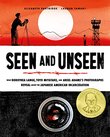
by Siri Hustvedt ‧ RELEASE DATE: March 11, 2014
Blazing indeed: not just with Harry’s fury, but with agonizing compassion for all of wounded humanity.
Awards & Accolades
Our Verdict

GET IT
Kirkus Reviews'
Best Books Of 2014
Kirkus Prize
finalist
An embittered female artist plays a trick on critics that goes badly awry in Hustvedt’s latest (The Summer Without Men, 2011, etc.).
An “Editor’s Introduction” sets up the premise: After the 1995 death of her husband, art dealer Felix Lord, Harriet Burden embarked on a project she called Maskings, in which she engaged three male artists to exhibit her work as their own, to expose the art world’s sexism and to reveal “how unconscious ideas about gender, race, and celebrity influence a viewer’s understanding of a given work of art.” Readers of Hustvedt’s essay collections (Living, Thinking, Looking, 2012, etc.) will recognize the writer’s long-standing interest in questions of perception, and her searching intellect is also evident here. But as the story of Harry’s life coheres—assembled from her notebooks, various pieces of journalism, and interviews with her children, the three male artists and other art-world denizens—it’s the emotional content that seizes the reader. After a lifetime of being silenced by the powerful presences of her father and her husband, Harry seethes with rage, made no less consuming by the fact that she genuinely loved Felix; the nuanced depiction of their flawed marriage is one of the novel’s triumphs, fair to both parties and tremendously sad. As in her previous masterpiece, What I Loved (2003), Hustvedt paints a scathing portrait of the art world, obsessed with money and the latest trend, but superb descriptions of Harry’s work—installations expressing her turbulence and neediness—remind us that the beauty and power of art transcend such trivialities. If only art could heal Harry, who learns the risks of entrusting others with your own unfinished business when the third of her male “masks” refuses to play her endgame. She dies less than a year later (no spoiler; we learn this from the opening pages), and the book closes with a moving final vision of her art: “every one of those wild, nutty, sad things…alive with the spirit.”
Blazing indeed: not just with Harry’s fury, but with agonizing compassion for all of wounded humanity.Pub Date: March 11, 2014
ISBN: 978-1-4767-4723-1
Page Count: 320
Publisher: Simon & Schuster
Review Posted Online: Nov. 26, 2013
Kirkus Reviews Issue: Dec. 15, 2013
Share your opinion of this book
More by Siri Hustvedt
BOOK REVIEW
BOOK REVIEW
by Siri Hustvedt ; illustrated by Siri Hustvedt
BOOK REVIEW
More About This Book
PROFILES

by Max Brooks ‧ RELEASE DATE: June 16, 2020
A tasty, if not always tasteful, tale of supernatural mayhem that fans of King and Crichton alike will enjoy.
Awards & Accolades
Likes

258
Our Verdict

GET IT
New York Times Bestseller
Are we not men? We are—well, ask Bigfoot, as Brooks does in this delightful yarn, following on his bestseller World War Z(2006).
A zombie apocalypse is one thing. A volcanic eruption is quite another, for, as the journalist who does a framing voice-over narration for Brooks’ latest puts it, when Mount Rainier popped its cork, “it was the psychological aspect, the hyperbole-fueled hysteria that had ended up killing the most people.” Maybe, but the sasquatches whom the volcano displaced contributed to the statistics, too, if only out of self-defense. Brooks places the epicenter of the Bigfoot war in a high-tech hideaway populated by the kind of people you might find in a Jurassic Park franchise: the schmo who doesn’t know how to do much of anything but tries anyway, the well-intentioned bleeding heart, the know-it-all intellectual who turns out to know the wrong things, the immigrant with a tough backstory and an instinct for survival. Indeed, the novel does double duty as a survival manual, packed full of good advice—for instance, try not to get wounded, for “injury turns you from a giver to a taker. Taking up our resources, our time to care for you.” Brooks presents a case for making room for Bigfoot in the world while peppering his narrative with timely social criticism about bad behavior on the human side of the conflict: The explosion of Rainier might have been better forecast had the president not slashed the budget of the U.S. Geological Survey, leading to “immediate suspension of the National Volcano Early Warning System,” and there’s always someone around looking to monetize the natural disaster and the sasquatch-y onslaught that follows. Brooks is a pro at building suspense even if it plays out in some rather spectacularly yucky episodes, one involving a short spear that takes its name from “the sucking sound of pulling it out of the dead man’s heart and lungs.” Grossness aside, it puts you right there on the scene.
A tasty, if not always tasteful, tale of supernatural mayhem that fans of King and Crichton alike will enjoy.Pub Date: June 16, 2020
ISBN: 978-1-9848-2678-7
Page Count: 304
Publisher: Del Rey/Ballantine
Review Posted Online: Feb. 9, 2020
Kirkus Reviews Issue: March 1, 2020
Share your opinion of this book
More by Max Brooks
BOOK REVIEW
by Max Brooks
More About This Book
BOOK TO SCREEN

by Genki Kawamura ; translated by Eric Selland ‧ RELEASE DATE: March 12, 2019
Jonathan Livingston Kitty, it’s not.
A lonely postman learns that he’s about to die—and reflects on life as he bargains with a Hawaiian-shirt–wearing devil.
The 30-year-old first-person narrator in filmmaker/novelist Kawamura’s slim novel is, by his own admission, “boring…a monotone guy,” so unimaginative that, when he learns he has a brain tumor, the bucket list he writes down is dull enough that “even the cat looked disgusted with me.” Luckily—or maybe not—a friendly devil, dubbed Aloha, pops onto the scene, and he’s willing to make a deal: an extra day of life in exchange for being allowed to remove something pleasant from the world. The first thing excised is phones, which goes well enough. (The narrator is pleasantly surprised to find that “people seemed to have no problem finding something to fill up their free time.”) But deals with the devil do have a way of getting complicated. This leads to shallow musings (“Sometimes, when you rewatch a film after not having seen it for a long time, it makes a totally different impression on you than it did the first time you saw it. Of course, the movie hasn’t changed; it’s you who’s changed") written in prose so awkward, it’s possibly satire (“Tears dripped down onto the letter like warm, salty drops of rain”). Even the postman’s beloved cat, who gains the power of speech, ends up being prim and annoying. The narrator ponders feelings about a lost love, his late mother, and his estranged father in a way that some readers might find moving at times. But for many, whatever made this book a bestseller in Japan is going to be lost in translation.
Jonathan Livingston Kitty, it’s not.Pub Date: March 12, 2019
ISBN: 978-1-250-29405-0
Page Count: 176
Publisher: Flatiron Books
Review Posted Online: Feb. 16, 2019
Kirkus Reviews Issue: March 1, 2019
Share your opinion of this book
© Copyright 2025 Kirkus Media LLC. All Rights Reserved.
Hey there, book lover.
We’re glad you found a book that interests you!
We can’t wait for you to join Kirkus!
It’s free and takes less than 10 seconds!
Already have an account? Log in.
OR
Trouble signing in? Retrieve credentials.
Welcome Back!
OR
Trouble signing in? Retrieve credentials.
Don’t fret. We’ll find you.





